_________________________________________________
Paris/New-York/Roma
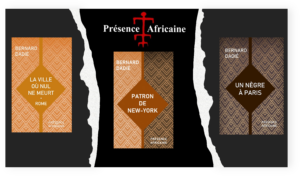 An Unmissable Trilogy at the Turn of African Independencies
An Unmissable Trilogy at the Turn of African Independencies
In the rich landscape of African literature, another grand trilogy rises majestically, marking the turning point of African independence and the onset of the postcolonial era. Présence Africaine Editions offer us the exceptional opportunity to rediscover this significant work by Bernard Dadié, a literary voice resonating alongside Chinua Achebe (Things Fall Apart, No Longer at Ease and Arrow of God), the other great author whose trilogy has left an indelible mark on the African literary scene.
Dive into the Works
An African in Paris – Un Africain à Paris (Présence Africaine, 1959)
217 pages | Novel | Ivory Coast
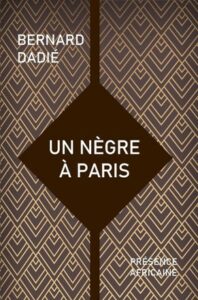 Summary: Follow the first journey of a West African man to France, from the exhilarating moment he obtains his ticket through a humorous and fascinating tour across the City of Light. Dadié’s subtle parodies draw on intimate knowledge obtained over decades spent observing colonizers abroad and, suddenly, on their own home terrain. His remarks on Parisian living conditions, wordplay, manners, and morals are entertaining and poignant, charming yet profound. Translated by Karen C. Hatch for Illinois University Press in 1994, offering a new perspective capturing the humorous and profound essence of the original work.
Summary: Follow the first journey of a West African man to France, from the exhilarating moment he obtains his ticket through a humorous and fascinating tour across the City of Light. Dadié’s subtle parodies draw on intimate knowledge obtained over decades spent observing colonizers abroad and, suddenly, on their own home terrain. His remarks on Parisian living conditions, wordplay, manners, and morals are entertaining and poignant, charming yet profound. Translated by Karen C. Hatch for Illinois University Press in 1994, offering a new perspective capturing the humorous and profound essence of the original work.
Translation info:
Translated by Karen C. Hatch
Published by Illinois University Press in 1994
One Way: Bernard Dadie Observes America – Patron de New York (Présence Africaine, 1964)
308 pages | Novel | Ivory Coast
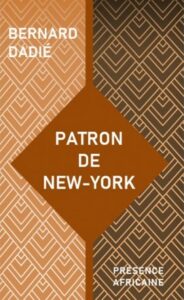 Summary: In the tradition of Tocqueville, Bernard Dadié offers impressions of America for a French-speaking audience, but in the style of an African griot. One Way (originally titled “Patron de New York”) displays breezy humor while touching upon weighty issues, including racism, efficiency and the profit motive, and international politics. Originally published in 1964, “One Way” captures a series of enduringly provocative American vanities. His tone—by turns whimsical, angry, compassionate, ironic, and appreciative—is always lively and always incisive.
Summary: In the tradition of Tocqueville, Bernard Dadié offers impressions of America for a French-speaking audience, but in the style of an African griot. One Way (originally titled “Patron de New York”) displays breezy humor while touching upon weighty issues, including racism, efficiency and the profit motive, and international politics. Originally published in 1964, “One Way” captures a series of enduringly provocative American vanities. His tone—by turns whimsical, angry, compassionate, ironic, and appreciative—is always lively and always incisive.
Awarded the Grand Prix littéraire d’Afrique Noire in 1965.
Translation info:
Translated by Jo Patterson
Foreword by Claude Bouygues
Published by Illinois University Press in 1994
The City Where No One Dies (La ville où nul ne meurt) – Présence Africaine (1968)
256 pages | Novel | Ivory Coast
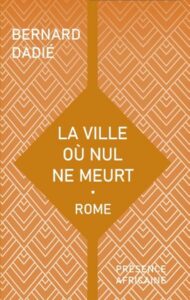 Summary: In this witty and ironic reversal of the typical colonial travelogue, Dadié recounts the journey of a bemused African traveler who settles in Rome, continuing his inquiries into the fundamental nature of humankind. Part conqueror, part pilgrim, part worshipper, and part critic, the protagonist compares Roman and African customs, traditions, history, and, above all, personalities. Dadié’s account of the rewards and pitfalls of exploring other cultures is spiced with generous enthusiasm and respect for life and all its eccentricities. First published in French in 1968.
Summary: In this witty and ironic reversal of the typical colonial travelogue, Dadié recounts the journey of a bemused African traveler who settles in Rome, continuing his inquiries into the fundamental nature of humankind. Part conqueror, part pilgrim, part worshipper, and part critic, the protagonist compares Roman and African customs, traditions, history, and, above all, personalities. Dadié’s account of the rewards and pitfalls of exploring other cultures is spiced with generous enthusiasm and respect for life and all its eccentricities. First published in French in 1968.
Translation info:
Translated by Janis A. Mayes
Published by Three Continents Press in 1986
The Author Behind the Words
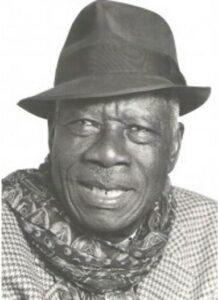 Bernard Binlin Dadié, considered the revered father of Ivorian literature, left a rich and diversified legacy. Born in Assinie, Ivory Coast, his journey, marked by political engagement and a prolific body of work encompassing poetry, novels, theater, chronicles, and traditional tales, constitutes an indelible contribution to African culture.
Bernard Binlin Dadié, considered the revered father of Ivorian literature, left a rich and diversified legacy. Born in Assinie, Ivory Coast, his journey, marked by political engagement and a prolific body of work encompassing poetry, novels, theater, chronicles, and traditional tales, constitutes an indelible contribution to African culture.
His life was a saga of activism, resistance, and public service. The pages of his prison journal, published in 1981 under the title Carnets de prison, reveal his courage during the February 1949 troubles. Minister of Culture and Information in 1977, he was honored with prestigious awards, including the Grand Prix littéraire d’Afrique noire in 1965 and the UNESCO/UNAM Prize in 2016.
Well-Deserved Recognition
His exceptional contribution to African culture was celebrated with the Grand Prix des mécènes at the 2016 Grands Prix des associations littéraires. Bernard Dadié continues to inspire current and future generations with an influence that extends far beyond his life.
Conclusion
With this reissue, Présence Africaine offers a new opportunity to explore Bernard Dadié’s timeless work, rediscovering a classic trilogy through the lense of a West African writer at turn of the independencies.
Don’t wait any longer; dive into Bernard Dadié’s universe, available now thanks to Présence Africaine.
In memory of Bernard Binlin Dadié, may his literary legacy continue to enlighten our lives.
Books & rights information: here
The books on Présence Africaine:
